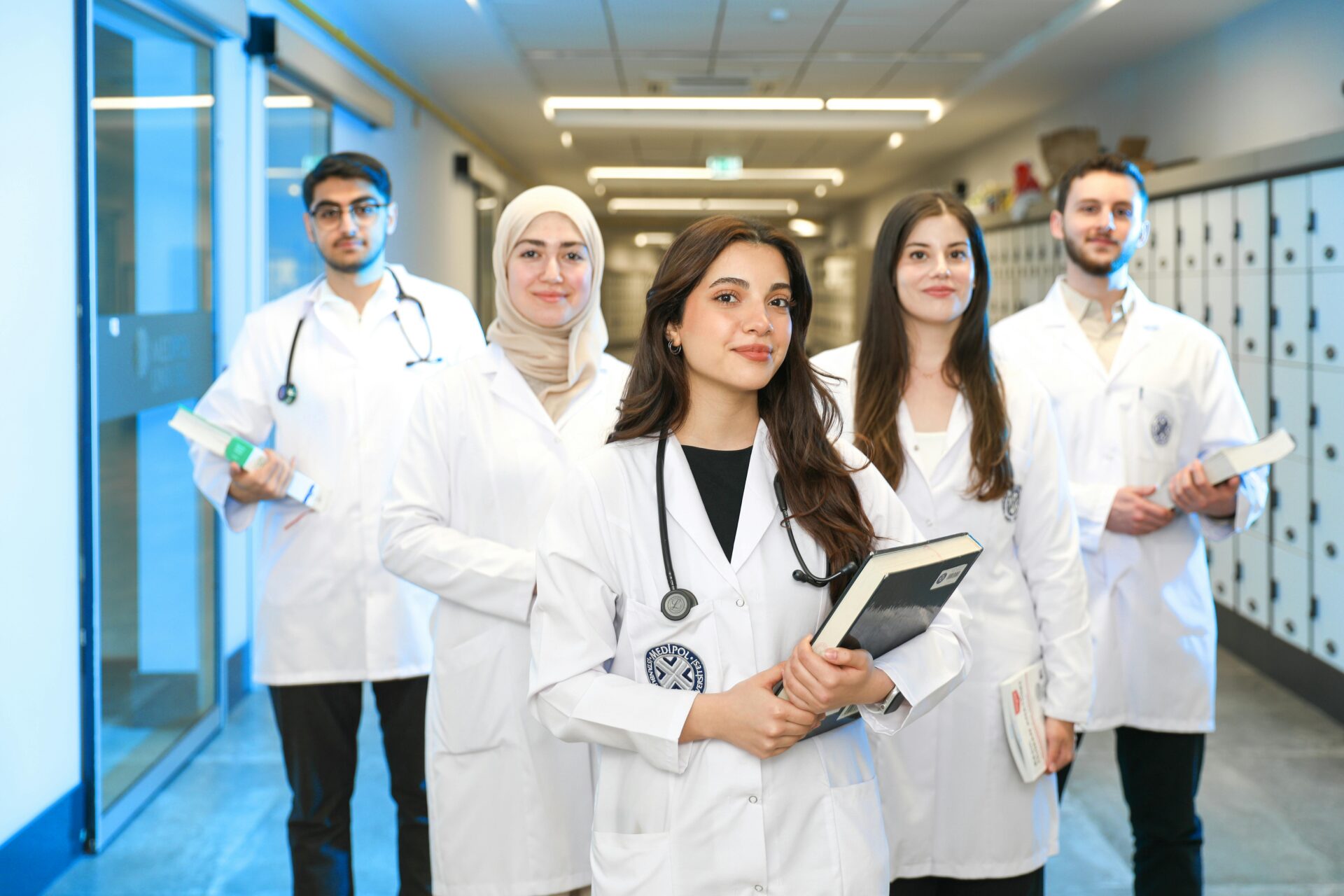Summer is more than just a break from lectures and labs; it’s a critical window for medical students to explore career-defining opportunities. Whether you’re early in your training or preparing for residency, the months between academic years can help you gain experience, develop new skills, and explore your interests outside the classroom. Many summer opportunities for medical students go beyond textbooks, including research labs, clinical internships, volunteer work, and global health initiatives. These experiences allow you to connect theory with real-world impact, deepen your understanding of medicine, strengthen your resume, and prepare for the challenges ahead.
This guide will walk you through the best summer opportunities for medical students, helping you understand what’s available and how each type of experience contributes to your growth. You’ll learn how to choose between research, clinical exposure, and service-based programs based on your goals and interests. We’ll also cover how to apply, the required qualifications, and where to find support along the way. Whether you’re looking to strengthen a specialty interest or explore new fields, this guide will give you the clarity and confidence to make the most of your summer.
Exploring Research Pathways as a Medical Student
Spending your summer working on research can deepen your scientific understanding while connecting you with mentors who shape your career. Many universities offer structured research opportunities tailored for first- and second-year medical students, especially in areas like oncology, neuroscience, and public health. If you’re aiming for a competitive specialty, having your name on a research paper or presenting a poster at a conference can help strengthen your residency application. You can also complement hands-on work by enrolling in an online medicine course to build theoretical knowledge alongside practical skills. These experiences teach you how to ask meaningful questions, analyze data, and collaborate with professionals across disciplines. Over time, research evolves from a summer activity to a skill that supports lifelong learning and evidence-based care.
Getting a summer research position does require some planning, especially if you’re targeting competitive placements. You’ll need to research medicine summer programs early, ideally in the fall or winter, and be ready to submit letters of recommendation and statements of purpose. Some programs may also expect you to have basic research experience or completed coursework in relevant fields. If you’re unsure where to start, speak with faculty at your institution or explore opportunities through platforms like Immerse Education, which offer guided academic experiences designed to strengthen your preparation. The right research project doesn’t need to be glamorous; it just needs to challenge you and support your interests.
Summer research doesn’t just build your CV; it shapes how you think and what kind of doctor you might become. As one of the most valuable summer opportunities for medical students, research helps you learn to navigate setbacks in experiments, interpret findings critically, and share results clearly, skills that mirror sound clinical reasoning. Moreover, working closely with a principal investigator often leads to strong mentorship, which is invaluable as you progress through medical school. Some students even return to the same lab throughout their education, turning summer projects into long-term collaborations. If you’re especially passionate, these experiences might inspire a dual-degree path like an MD/PhD. No matter your specialty, spending your summer doing research can sharpen your insight, boost your confidence, and set the stage for academic success.
Clinical Experiences and Medical Internships for Summer
If you’re looking to spend your summer in a clinical setting, many hands-on opportunities allow you to shadow physicians, participate in patient education, or assist in administrative roles. These summer opportunities for medical students help you apply classroom knowledge to real-life healthcare environments. Hospitals, clinics, and public health organizations often run formal internship programs where you can observe different specialties and understand how care teams work together. Some institutions offer rotations or externships tailored for early-year medical students.
Finding the right clinical program depends on your goals and the kind of environment you want to explore. Among the many summer opportunities for medical students, clinical placements offer hands-on experience in settings that help you understand how medicine is practiced day to day. Urban hospitals expose you to diverse cases and fast-paced care, while rural placements often offer more direct interaction with patients and physicians. To apply, you may need a CV, personal statement, and transcript. Some placements are competitive and require interviews, while others are more accessible through partnerships with your school. Always check for any prerequisites such as immunization records, background checks, or online training. These internships can make a meaningful difference in how confident and prepared you feel moving into clerkships.
Although many programs are unpaid, some offer stipends or housing to help offset costs. Even without financial support, the value of clinical internships lies in the exposure they provide to daily medical practice. You’ll learn how to communicate professionally, participate in rounds, and understand the complexities of patient care. Whether you’re drawn to pediatrics, emergency medicine, or psychiatry, direct experience is the best way to test your interests. Clinical exposure also builds your empathy and helps you see the human side of medicine. For those considering pre college medical programs, early clinical engagement can offer a head start in both knowledge and confidence.
Research-Based Summer Opportunities and Academic Development
If you’re aiming to build your academic profile, research-based summer opportunities for medical students can play a decisive role in shaping your future in medicine. Many medical schools and research institutions offer summer research experiences that let you work alongside experienced scientists or clinical investigators. You can also consider enrolling in an online research program if you need more flexibility or remote access to research opportunities. These experiences help you develop valuable skills in data analysis, scientific writing, and laboratory techniques. They also allow you to contribute to projects in areas like immunology, neuroscience, cardiology, or public health. Working on research over the summer shows initiative and may even lead to conference presentations or publication opportunities, both of which can strengthen your residency application.
You don’t have to be an expert in research to get started. Many summer opportunities are designed for first- or second-year medical students with limited lab experience. What matters most is your curiosity, commitment, and willingness to learn. Most programs begin with basic training and gradually assign more responsibility as your understanding grows. You might work on designing experiments, reviewing medical literature, or inputting data into patient databases. Many experiences also include weekly seminars or journal clubs, where students discuss recent studies and develop their critical analysis skills. These structured elements provide a well-rounded academic experience.
Finding the right research opportunity depends on your interests and long-term goals. If you’re considering a specific specialty, look for mentors or departments that align with that focus. Start early by reaching out to faculty at your school or exploring academic institutions that host summer scholars. If you’re looking for flexibility, an online medicine research programme can also be a valuable option that allows you to gain experience remotely. You’ll want to prepare application materials such as a personal statement and letters of recommendation ahead of deadlines.
Choosing the Right Summer Opportunity for Your Medical Career
Selecting the right summer school program requires you to reflect on your goals, values, and your current stage in your medical journey. With so many summer opportunities for medical students available, it’s easy to feel overwhelmed. To start, think about what you hope to gain, whether it’s clinical exposure, research practice, community engagement, or academic credit. You’ll also want to consider program length, location, and whether it fits into your overall schedule. Some opportunities require applications months in advance, so planning early is key. Begin by reviewing what aligns best with your career interests and long-term vision.
Your decision should also factor in mentorship and support. Programs that include experienced faculty, structured guidance, or peer learning can provide more value than those that offer independent placements. If you enjoy close supervision or are exploring new areas, choose a program that includes daily or weekly feedback. However, if you’re self-motivated and looking to lead a project, research or clinical fellowships may offer more freedom. Check the availability of funding, stipends, or housing to ensure it’s financially sustainable. Comparing the structure, expectations, and resources of different programs can help you make a more informed decision.
In addition, don’t overlook how a summer program fits into your broader academic profile. Admissions committees often view summer activities as indicators of your drive, curiosity, and commitment to medicine. A research internship may help build a strong portfolio for competitive residencies, while volunteering shows your compassion and public service values. Think of the summer not just as a break but as a unique window to grow, discover, and expand your learning. Ask advisors, alumni, or faculty for input as you evaluate your choices. When selected thoughtfully, a summer opportunity can set you apart and reaffirm your purpose in becoming a doctor.
Wrap Up
Exploring opportunities for medical students is a powerful way to enrich your academic path and gain hands-on experience beyond the classroom. Whether you’re conducting research in a lab, shadowing physicians, volunteering abroad, or joining a university-led program, each opportunity plays a role in shaping your future in medicine. A well-chosen summer experience can boost your resume, deepen your skill set, and help you uncover the medical fields that truly spark your interest. To make the most of your time, start by identifying what matters most: lab work, public health outreach, or academic prestige. By aligning your summer activities with your passions and goals, you transform a break into a meaningful launchpad for growth and impact.
If you’re looking for structured guidance on enriching your summer, Immerse Education has a track record of supporting ambitious students just like you. With a variety of academic programs that encourage inquiry, global collaboration, and expert-led mentorship, you’ll find high-impact learning tailored to your goals. To learn more about how we can help you make the most of your summer, contact us at hello@immerse.education or call us at +44(0) 20 8123 6988. Our team is happy to offer a free consultation to support your academic decisions. Remember, the journey to becoming a doctor isn’t just about medical school; it’s about the meaningful choices you make along the way.

























